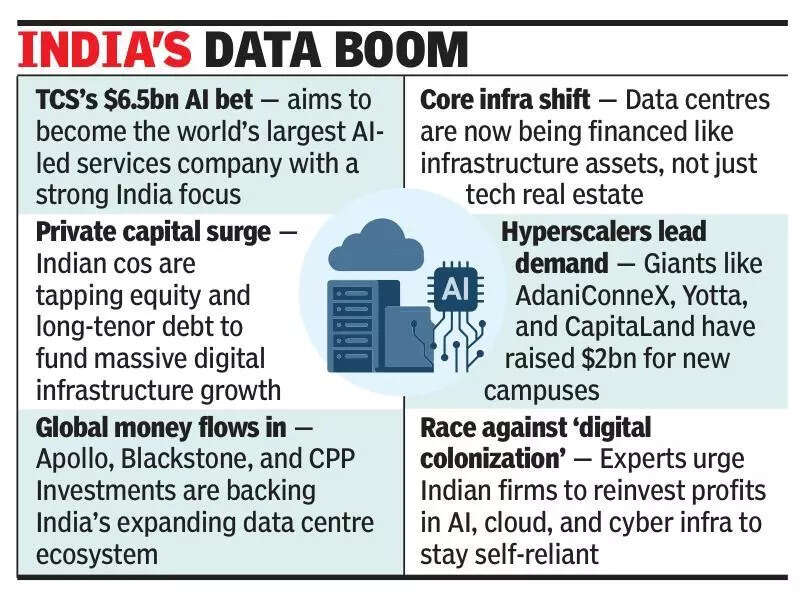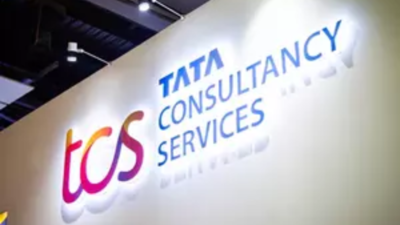
BENGALURU: TCS’s $6.5 billion capex blueprint for the AI data centre move goes beyond risk capital—it signals a push to build capabilities and perhaps prevent tech colonisation. Indian firms are increasingly turning to private capital to expand capacity and meet surging digital demand.In a recent interview with TOI, TCS CEO K Krithivasan said it aims to become the world’s largest AI-led services company. “This initiative also has a strong India angle, alongside global opportunities with our existing clients. In terms of funding, it will be a mix of equity and debt. On the equity side, we’ve partnered with a financial investor, giving us the flexibility and control to shape our growth path and decide who we work with—resulting in a stronger and more strategic business model.”Prateek Jhawar, MD and head of infrastructure and real assets investment banking at Avendus Capital, said institutions like Apollo, Blackstone, and CPP Investments are structuring long-tenor debt against contracted hyperscaler cash flows.“Recent deals (Digital Realty’s $7 billion JV with Blackstone, Aligned’s $1.7 billion private credit raise, and EdgeCore’s $1.9 billion financing) highlight how bespoke capital stacks are reshaping the ecosystem. The demand tailwinds are so strong that data centres are now being underwritten more like core infrastructure assets, not just technology real estate,” he said.

Jhawar said the country’s data centre capacity is expected to exceed 2,000 MW in the next 2 years, requiring an estimated $3.5 billion of incremental investment. He said operators such as AdaniConneX, Yotta Data, and CapitaLand have raised cumulatively $2 billion to fund hyperscale campuses in Mumbai, Chennai, and Hyderabad. “What’s changing is not just the volume of capital, but the nature of it. Flexible private credit structures and long-dated infrastructure funds are now competing to anchor Indian digital infrastructure. For investors, this convergence of AI-led demand, predictable cash flows, and hard-asset characteristics is transforming data centres into the defining infrastructure story of the next decade,” he added.A Barclays report showed that India can potentially receive around $19 billion in data centre investments by 2030, higher than the $12 billion it received last year. Sanjeev Dasgupta, CEO of CapitaLand Investment India, said India’s demand is driven by two key segments: hyperscalers and large enterprise customers such as banks, financial institutions, and stock exchanges. “Both are growing fast, but hyperscalers are expanding faster due to AI plans in India and other markets,” he said.








